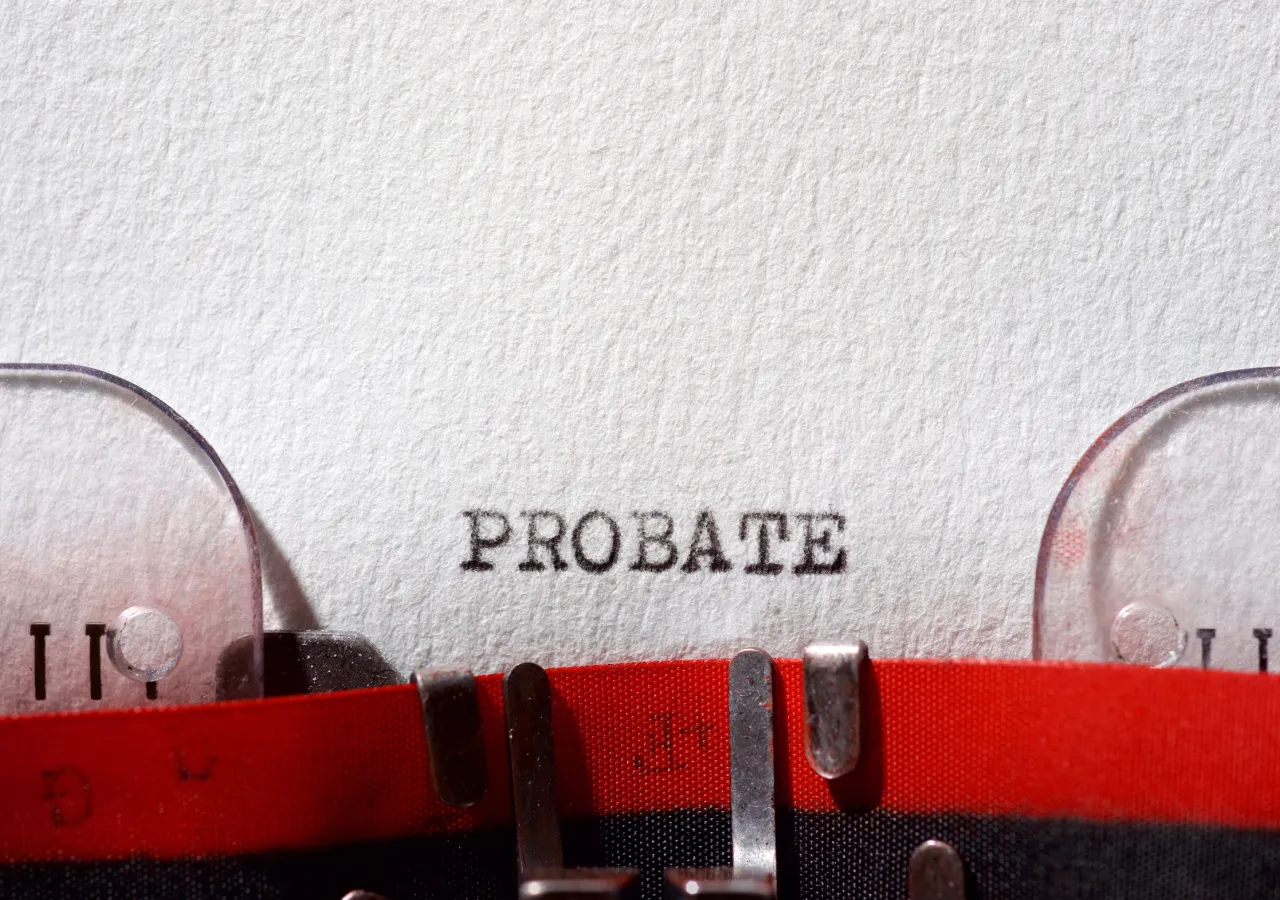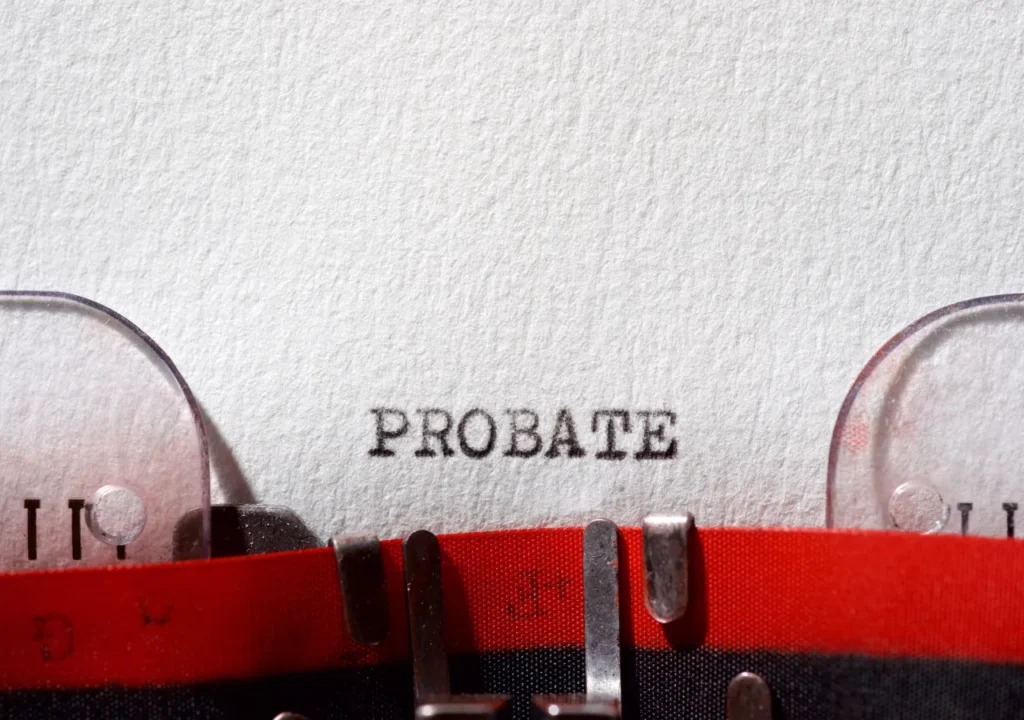Address
Macarthur Square, WOTSO, Level 2, Shop L080/200 Gilchrist Dr, Campbelltown NSW 2560, Australia
Work Hours
Monday to Friday: 9AM - 5PM
Weekend: Closed


A Grant of Probate is an order issued by the Supreme Court of NSW that enables an executor to; legally distribute and manage a deceased person’s estate.
Find out more about the probate application process, what documents are required, how long it takes and the role of an executor.
Let’s take a closer look.
When a person dies in New South Wales, the executor nominated in their will must distribute the deceased’s estate to the nominated beneficiaries. Before this can occur, the executor must obtain a Grant of Probate from the NSW Supreme Court, which gives them the authority to manage the deceased’s assets.
The Grant of Probate process also confirms the will is the most recent valid will, and the identity of the nominated executor.
The role of an executor is to carry out the terms of the will and to manage the financial, personal and legal affairs of a deceased person. It is a complex and crucial role that must be performed by a responsible and trustworthy individual, over 18 years.
The financial administration aspect of the estate includes: establishing liabilities, keeping financial records, contacting financial institutions, paying debts and preparing the final tax return.
The executor must also organise and arrange funeral arrangements, apply for the Grant of Probate, and contact and keep beneficiaries updated with the progress of estate distribution.
Probate is a legal document that confirms the authority of the executor and the assets and liabilities of the deceased. When distributing the estate, creditors such as financial institutions, share registries, land title offices and other institutions will require proof before they release funds or assets to an executor.
It is crucial that a deceased estate is legally managed and can only be accessed once a Grant of Probate is approved.
Probate may not be necessary in the following circumstances:
Probate applications can be lodged online via the Supreme Court’s probate platform, and the following documents must accompany the application;
Executors should obtain a certified copy of the will before filing, as the original will may be kept on file at the Supreme Court and not released after probate is granted.
It is crucial when administering a deceased estate that an executor follows the correct process. Otherwise, they may be liable to pay outstanding estate debts. The process is as follows:
Executors must locate the original will and obtain a death certificate. They should also obtain certified copies of original documents is advisable.
Before applying for a Grant of Probate, the executor must lodge the notice of intended application online. The notice will be published on the NSW online registry, which protects against parties wishing to make future claims on the estate, personal liabilities and advises creditors where to send enquiries.
Upon lodgement, the applicant must pay a publishing fee of $49.
Executors must create an inventory of the estate that may include real estate, shares cash, insurance, superannuation, or personal and household items.
The affidavit of the executor must list all liabilities of the deceased and must include the value, date and name of the creditor.
When applying online, the required documents must be included, such as summons, will, death certificate, inventory, etc.
When the probate application is submitted, applicants must pay a filing fee if the estate is over $100,000 otherwise, the fee is waived. The amount of the filing fee will vary depending on the value of the deceased estate.
Executors will receive the Grant of Probate once it has been approved by the Supreme Court. New South Wales Grants of Probate are now an electronic PDF document instead of a physical paper order.
Executors must lodge a notice of intended distribution that notifies the public that they have received a Grant of Probate and are about to begin the distribution of the deceased estate.
Once the executor has the probate document, they can administer the estate, which may include duties such as, paying debts, collecting property and assets, opening an estate bank account, and completing and lodging a final tax return.
Executors must allow the appropriate notice period, and ensure that all debts and expenses are paid before they begin estate distribution.
The notice must have been published for at least 30 days and, six months have passed since the date of death.
Once all liabilities have been paid, the residual of the estate may be distributed to beneficiaries named in the final will of the deceased person.
The first step when lodging a Grant of Probate is to submit a notice of intended application online. After a period of two weeks, the executor can submit the application, which can take between 2-6 weeks before a grant is approved. The time frame may vary depending on court caseloads and requisitions.
Executors can contact the Supreme Court of NSW Registry to check the applications status.
A Grant of Probate application must be lodged within six months from the date of death of the deceased. In certain circumstances, the court may approve outside of these timeframes, if there is a reasonable explanation.
When a person dies without a will (intestate), their assets are managed by the deceased’s next of kin. Instead of applying for a Grant of Probate from the Supreme Court of NSW, they must apply for Letters of Administration, which provide the next of kin authority to manage the estate.
When a person dies in New South Wales, the executor nominated in their will must distribute the deceased’s estate to their nominated beneficiaries. Before this can occur, the executor must obtain a Grant of Probate from the NSW Supreme Court, which gives them the authority to manage the estate.
When distributing the estate, creditors will require proof before they release funds or assets to an executor. A Grant of Probate is a legal document that confirms the authority of the executor and the assets and liabilities of the deceased.
Probate applications can be lodged online via the Supreme Court’s probate platform, and certain documents must accompany the application.
The first step when lodging a Grant of Probate is to submit a notice of intended application online. After a period of two weeks, the executor can submit the application, which can take between 2-6 weeks before a grant is approved.
Grant of Probate applications must be submitted, within six months from the date of death of the deceased.
The first step when lodging a Grant of Probate is to submit a notice of intended application online. The probate notice is published on the NSW online registry, which notifies any parties wishing to make claims on the estate. After a period of two weeks, the executor can submit the application, which can take between 2-6 weeks before a grant is approved.
A Grant of Probate application must be lodged, within six months from the date of death of the deceased.
Probate applications can be lodged online via the Supreme Court’s probate platform, and several documents must accompany the application;
Upon lodgement of the intended application the applicant must pay a publishing fee of $49.
When the Grant of Probate application is submitted, an applicant must pay a filing fee if the estate is over $100,000 otherwise, the fee is waived. The amount of the filing fee will vary depending on the value of the deceased estate, and court fees start at $853 for a small estate.
 Eleni Overell who has considerable experience in Probate and Estate matters is based in Campbelltown and serving the Macarthur and surrounding areas. Holding a Bachelor of Laws from Western Sydney University, her legal expertise spans Property Law, Criminal Law, and more. A member of the Law Society of New South Wales, Eleni also actively contributes to the community through her role on the NSW Legal Aid Panel. Call Eleni for a free consultation on Probate in NSW.
Eleni Overell who has considerable experience in Probate and Estate matters is based in Campbelltown and serving the Macarthur and surrounding areas. Holding a Bachelor of Laws from Western Sydney University, her legal expertise spans Property Law, Criminal Law, and more. A member of the Law Society of New South Wales, Eleni also actively contributes to the community through her role on the NSW Legal Aid Panel. Call Eleni for a free consultation on Probate in NSW.
